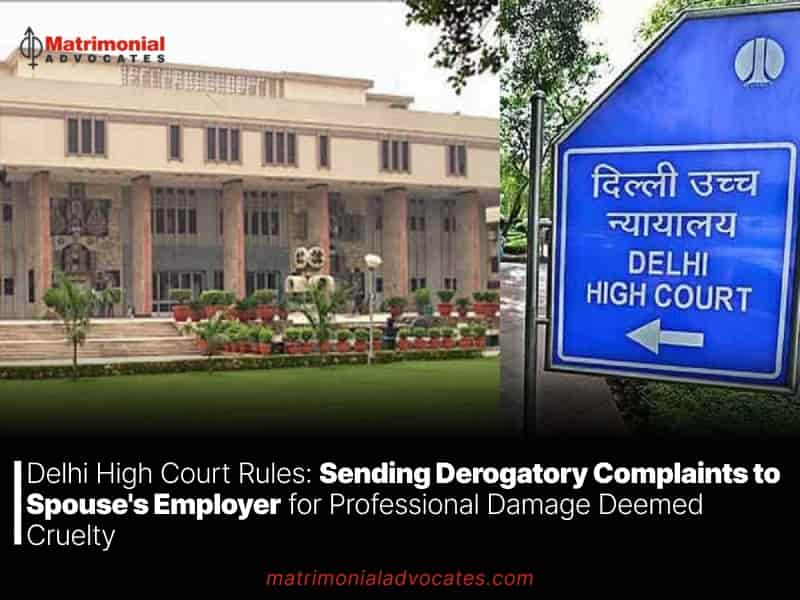
The Delhi High Court has recently stressed the significance of maintaining mutual respect in marriage, highlighting that lodging derogatory complaints to a spouse’s employer as a means of harming their professional standing and financial stability constitutes cruelty.
A division bench, presided over by Justice Suresh Kumar Kait and Justice Neena Bansal Krishna, emphasized that such actions not only cause harm but also indicate a breakdown in the essential pillars of goodwill necessary for a healthy marital bond.
The court asserted that merely citing the occurrence of such complaints post-separation does not absolve the offending spouse of the cruelty inflicted on the other.
“It is unequivocal that making derogatory complaints to a spouse’s employer with the aim of tarnishing their professional reputation and financial stability amounts to cruelty,” declared the court.
These observations were made in the context of a divorce case where the husband sought separation on grounds of cruelty under Section 13(1)(ia) of the Hindu Marriage Act, 1955.
The court upheld the husband’s appeal against the family court’s decision to dismiss his divorce petition. The couple had tied the knot in 2011 and lived together for a mere 2-3 months.
The husband alleged that the wife subjected him and his parents to abusive phone calls and filed complaints with his employer, the RBI, to embarrass him in front of colleagues.
Conversely, the wife claimed desertion by the husband and neglect of their child, alleging mistreatment and neglect by her in-laws.
The court observed that the family court failed to acknowledge that derogatory language exchanged between spouses, especially aimed at in-laws, not only tarnishes individuals’ dignity but also erodes the trust crucial for marital harmony.
“The acknowledgment by the wife of sending messages containing derogatory language towards the husband’s father reflects a lack of respect and consideration in the relationship, undermining the foundational principles of mutual respect and support crucial for a healthy marriage,” remarked the court.
Furthermore, the court suggested that the spouses’ prolonged involvement in litigation spanning over a decade could also be viewed as cruelty.
The bench noted that the wife’s failure to appear for cross-examination indicated a deliberate choice to not substantiate her allegations against the husband.
It concluded that by leveling false accusations of adultery, lodging complaints with the husband’s employer, making derogatory remarks against his father, and initiating multiple litigations, the wife inflicted mental cruelty upon the husband, falling within the purview of Section 13(1)(ia) of the Hindu Marriage Act.
“The brief cohabitation period of less than a year with the husband and the deliberate avoidance of his parents and their child deprived the husband of marital happiness and fatherhood,” concluded the court.





